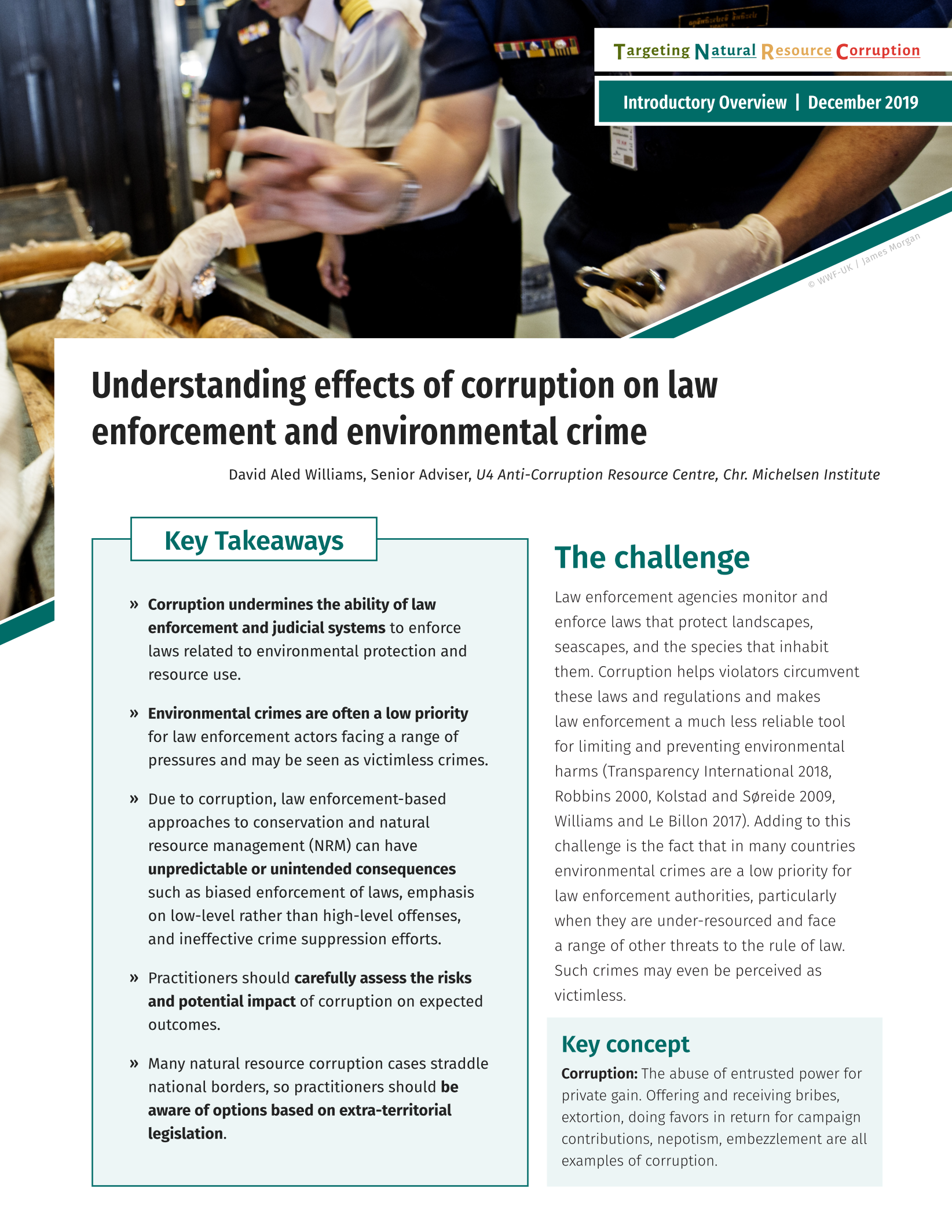Main points
- Corruption undermines the ability of law enforcement and judicial systems to enforce laws related to environmental protection and resource use.
- Environmental crimes are often a low priority for law enforcement actors facing a range of pressures and may be seen as victimless crimes.
- Due to corruption, law enforcement-based approaches to conservation and natural resource management (NRM) can have unpredictable or unintended consequences such as biased enforcement of laws, emphasis on low-level rather than high-level offenses, and ineffective crime suppression efforts.
- Practitioners should carefully assess the risks and potential impact of corruption on expected outcomes.
- Many natural resource corruption cases straddle national borders, so practitioners should be aware of options based on extra-territorial legislation.





